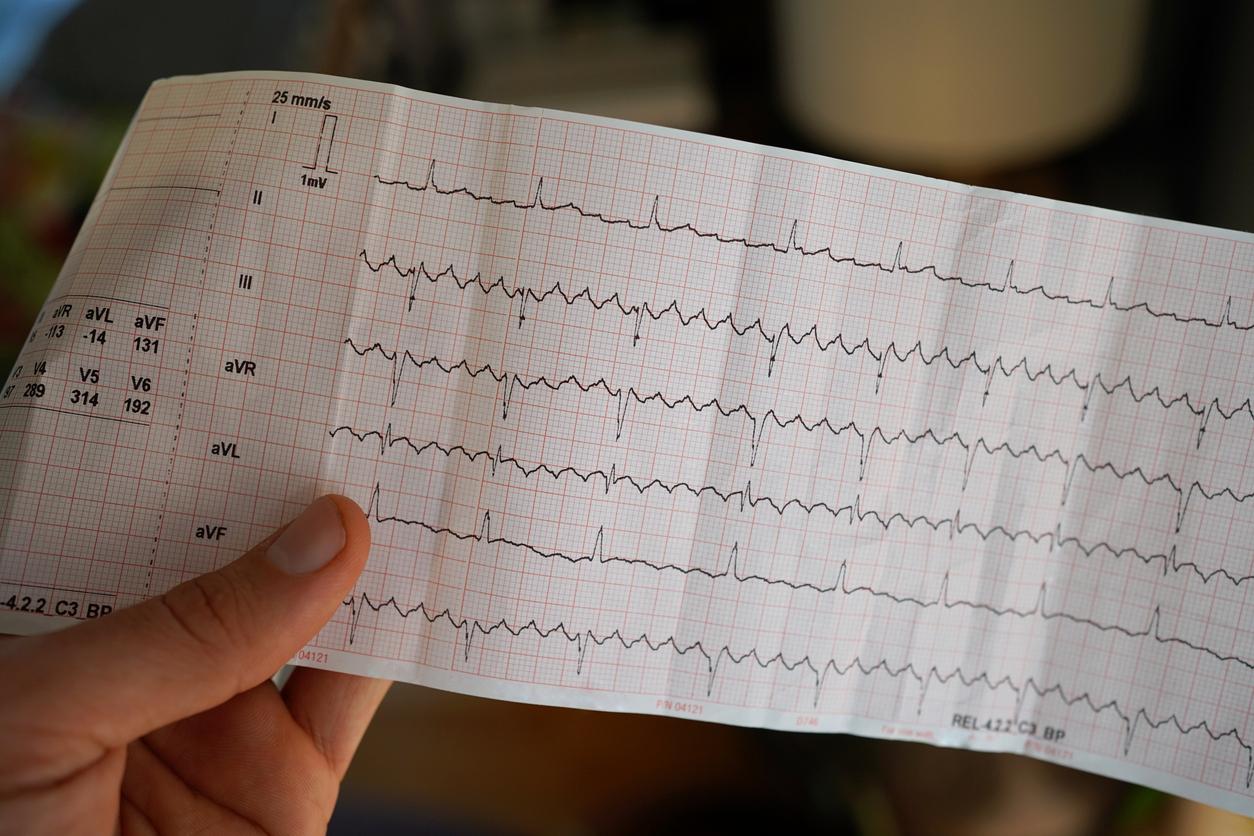At work, stress caused by tension and an imbalance between efforts applied and rewards received can increase the risk of atrial fibrillation, according to a study.

- For the first time, a team of researchers has examined the adverse effects of two psychosocial stressors at work – job strain and the imbalance between efforts applied and rewards received – on the risk of atrial fibrillation (AF).
- Employees reporting exposure to high job strain had an 83% higher risk of developing FI compared to workers not affected by this stressor.
- Those who complained of an effort-reward imbalance had a 44% higher risk compared to the others. And it gets even worse when the two stressors combine: the risk of FI jumps by 97%.
Affecting approximately 1% of the population in France, atrial fibrillation is the most common form of arrhythmia, an abnormal heart rhythm. It can lead to stroke, heart failure or other cardiovascular complications. Aging, family predisposition but also obesity, sleep apnea or chronic anxiety can promote its appearance.
For the first time, a team of researchers has investigated the adverse effects of two psychosocial stressors at work – job strain and the imbalance between efforts applied and rewards received – on the risk of atrial fibrillation (AF). Their findings were published in the Journal of the American Heart Association.
Work-related stress can increase the risk of atrial fibrillation by up to 97%
Job strain refers to a work environment in which employees are faced with high demands (heavy workload, tight deadlines, etc.) and have little control over decision-making and task execution. As for effort-reward imbalance, it is perceived when employees invest a lot in their work, but perceive the rewards they get in return (salary, recognition, job security) as insufficient or unequal to their performance.
As part of the study, researchers examined the medical records of nearly 6,000 adults “white collar jobs” in Canada and followed, from an average age of 45, for a period of eighteen years. They then assessed the participants’ work-related stress using questionnaires.
As a result, employees reporting high job strain had an 83% higher risk of developing FI compared to workers not affected by this stressor. Those who complained of an effort-reward imbalance had a 44% higher risk compared to the others. And it gets even worse when the two stressors combine: the risk of FI jumps by 97%.
Reduce work stress to lower blood pressure
“Our study suggests that work-related stressors should be included in preventive strategies,” says Professor Xavier Trudel, lead author of the study, in a press release. “Recognizing and addressing psychosocial stressors at work is necessary to foster healthy environments that benefit both individuals and the organizations in which they work.”
It has been shown, according to the team of researchers, “that an organizational intervention designed to reduce psychosocial stressors at work […] effectively reduced blood pressure levels”. Changes include implementing flexible work schedules, slowing down the implementation of a major project to avoid an increase in workload, and holding meetings between managers and employees to discuss daily challenges.


















